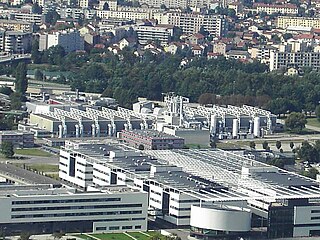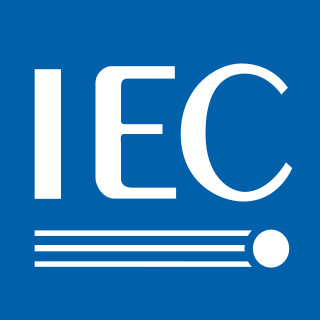 W
WThe ARC Centre of Excellence in Future Low-Energy Electronics Technologies is a collaboration of physicists, electrical engineers, chemists and material scientists from seven Australian universities developing ultra-low energy electronics aimed at reducing energy use in information technology (IT). The Centre was funded in the 2017 ARC funding round.
 W
WCEA-Leti is a research institute for electronics and information technologies, based in Grenoble, France. It is one of the world's largest organizations for applied research in microelectronics and nanotechnology.
 W
WThe Electrical Engineering STudents' European assoCiation (EESTEC) is a nonprofit apolitical and non-governmental student organization for Electrical Engineering and Computer Science (EECS) students at universities, institutes and schools of technology in Europe awarding an engineering degree. As of March 2020, there were 48 current locations in EESTEC from 24 countries, although several other locations were active in EESTEC over the years.
 W
WThe École nationale supérieure d'informatique et de mathématiques appliquées, or Ensimag, is a prestigious French Grande École located in Grenoble, France. Ensimag is part of the Institut polytechnique de Grenoble. The school is one of the top French educational institutions and specializes in Computer science, Applied Mathematics and Telecommunications.
 W
WThe Institution of Electrical Engineers (IEE) was a British professional organisation of electronics, electrical, manufacturing, and Information Technology professionals, especially electrical engineers. It began in 1871 as the Society of Telegraph Engineers. In 2006, it changed its name to the Institution of Engineering and Technology (IET).
 W
WThe Institution of Engineering and Technology (IET) is a multidisciplinary professional engineering institution. The IET was formed in 2006 from two separate institutions: the Institution of Electrical Engineers (IEE), dating back to 1871, and the Institution of Incorporated Engineers (IIE) dating back to 1884. Its worldwide membership is currently in excess of 158,000 in 153 countries. The IET's main offices are in Savoy Place in London, England and at Michael Faraday House in Stevenage, England.
 W
WThe International Council on Large Electric Systems (CIGRE) is a global nonprofit organization in the field of high voltage electricity. It was founded in Paris, France in 1921. The scope of its activities include the technical and economical aspects of the electrical grid, as well as the environmental and regulatory aspects.
 W
WThe International Electrotechnical Commission is an international standards organization that prepares and publishes international standards for all electrical, electronic and related technologies – collectively known as "electrotechnology". IEC standards cover a vast range of technologies from power generation, transmission and distribution to home appliances and office equipment, semiconductors, fibre optics, batteries, solar energy, nanotechnology and marine energy as well as many others. The IEC also manages four global conformity assessment systems that certify whether equipment, system or components conform to its international standards.
 W
WThe Pakistan Engineering Council ; acronym PEC) is a professional body for accreditation of engineering education and regulation of engineering profession in Pakistan. It was established in 1976 by the PEC act 1976. The council also registers engineers and professional engineers and grants license to consulting and constructing/operating engineering firms working in Pakistan.
 W
WThe South African Institute of Electrical Engineers (SAIEE) is a professional association representing electrical and electronic engineers, technologists and technicians in Southern Africa. The organisation is listed as a recognised Voluntary Association by the Engineering Council of South Africa (ECSA), the statutory body that registers professional engineers, professional certificated engineers, professional engineering technologists and professional engineering technicians in South Africa. Over a century, the activities of the SAIEE have included publication, education, the promotion of electrical engineering, professional development of its members, public events, and participation in public debate affecting the profession, industry and society.